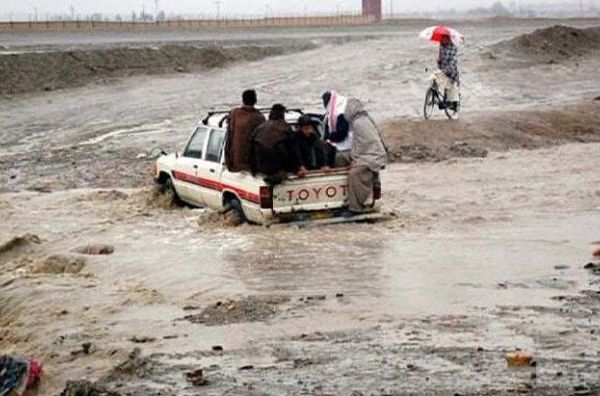Lebanon’s ‘Useless’ Election is Neither Free Nor Fair

It’s election season in Lebanon. Millions will head to the ballot box on May 15 to choose their parliamentarians, who will in turn elect a new president before October. International voting monitors are scheduled to observe election day and will likely report that the voting went smoothly.
What they will miss, however, is the Hezbollah coercion that has occurred in the weeks and months leading up to the vote.
Abbas Jawhari, a Shia cleric from the country’s Baalbek district, is running on a platform that emphasizes sovereignty and disbanding the pro-Iran Hezbollah militia. His “State Building” ticket also aligns with calls from the Vatican and Maronite Christian Patriarch Bechara Rai, that Lebanon should toe a policy of regional neutrality.
Lebanon has not conducted a census since 1932. However, before every election, the interior ministry posts lists of eligible voters, showing their religious affiliations. At 30 percent of the electorate, Sunnis are the biggest bloc, with Shia just slightly less, and then Christians, at 28 percent. Minorities account for about 12 percent of the vote, with the Druze being the biggest minority at around 10 percent.
Hezbollah has swept to victory in Baalbek in every election since 1992. But in 2018, the pro-Iran Shia militia lost eight percent of the vote there (and two of 10 seats) in the district. With the country in economic free fall since 2019, and popular anger growing, any Shia rival poses a threat to the status quo. That’s why the militia, fearful of further losses in parliament, has been harassing candidates like Jawhari.
For instance, last month Jawhari was campaigning in the town of Khodor, near Baalbek, when he was met with Hezbollah intimidation. Standing at a podium, the sheikh was saying, “We’re going to elect freely, no one can dictate to us…” as machine gun fire erupted, forcing him to take refuge with his security detail.
Days later, three candidates from Jawhari’s ticket ended their campaigns. One of them, Rifaat Al Masri, said, “We are the children of a resistance family… proud of arms trained at our Zionist and Takfirist enemies.” He added, confirming speculation that his withdrawal came under pressure from Hezbollah, that “as long as the Israeli enemy persists with its aggression against Lebanon, we stand with the resistance.” Building on the premise that warring with Israel was Lebanon’s top priority, Al Masri concluded: “This election is useless.”
Al Masri’s comments came shortly after political developments showed that Lebanon’s problems are only getting deeper and more complicated.
The World Bank reported that it was delaying funding for the import of Egyptian gas, a US-backed plan that would pump supplies through Jordan and Syria to help Lebanon generate desperately needed electricity. A staff-level agreement with the International Monetary Fund, dangling $3 billion in aid if Lebanon applied already agreed reforms, also looks doomed, given Beirut’s inability to stand up to the rampant corruption of the ruling oligarchs.
Given these developments it seems that Al Masri is right. If, despite all of Lebanon’s misery, Hezbollah can force the debate to be narrowly about warring with Israel, then the election will indeed be a wasted opportunity.
In non-Shia districts, competition between pro-Hezbollah, non-Shia oligarchs and non-partisan candidates seems to be fairer. In the predominantly Maronite town of Beth Anya, Patriarch Al Rai sponsored a meeting that called for Lebanon’s neutrality. Half a dozen US Congressional members delivered recorded speeches calling for peace between Lebanon and Israel and to reintegrate their country into the regional and global economy.
Uncharacteristically, Hezbollah and its media let the meeting proceed without interference. The militia was clearly trying to spare its Maronite allies – such as President Michel Aoun’s son-in-law and aspiring successor, Gebran Bassil – the embarrassment of having to side with Hezbollah and against the Maronite religious leadership.
Through coercion that started last year with the assassination of Shia political activist Lokman Slim, Hezbollah thinks that it can keep the Shia under its thumb. Meanwhile, non-Shia oligarchs have either been threatened into submission by earlier acts of violence – such as the killing of Sunni Prime Minister Rafik Hariri in 2005 – or rewarded with government seats (such as Aoun becoming president), or pacified by corruption.
When the Lebanese go to the polls on May 15, global organizations will report on a ballot that the West will likely see as free and fair. But Hezbollah will already have twisted enough arms before election day to keep things going the way it wants, producing an election that will not be free and fair and more useless than productive.
This article was provided by Syndication Bureau, which holds the copyright.







